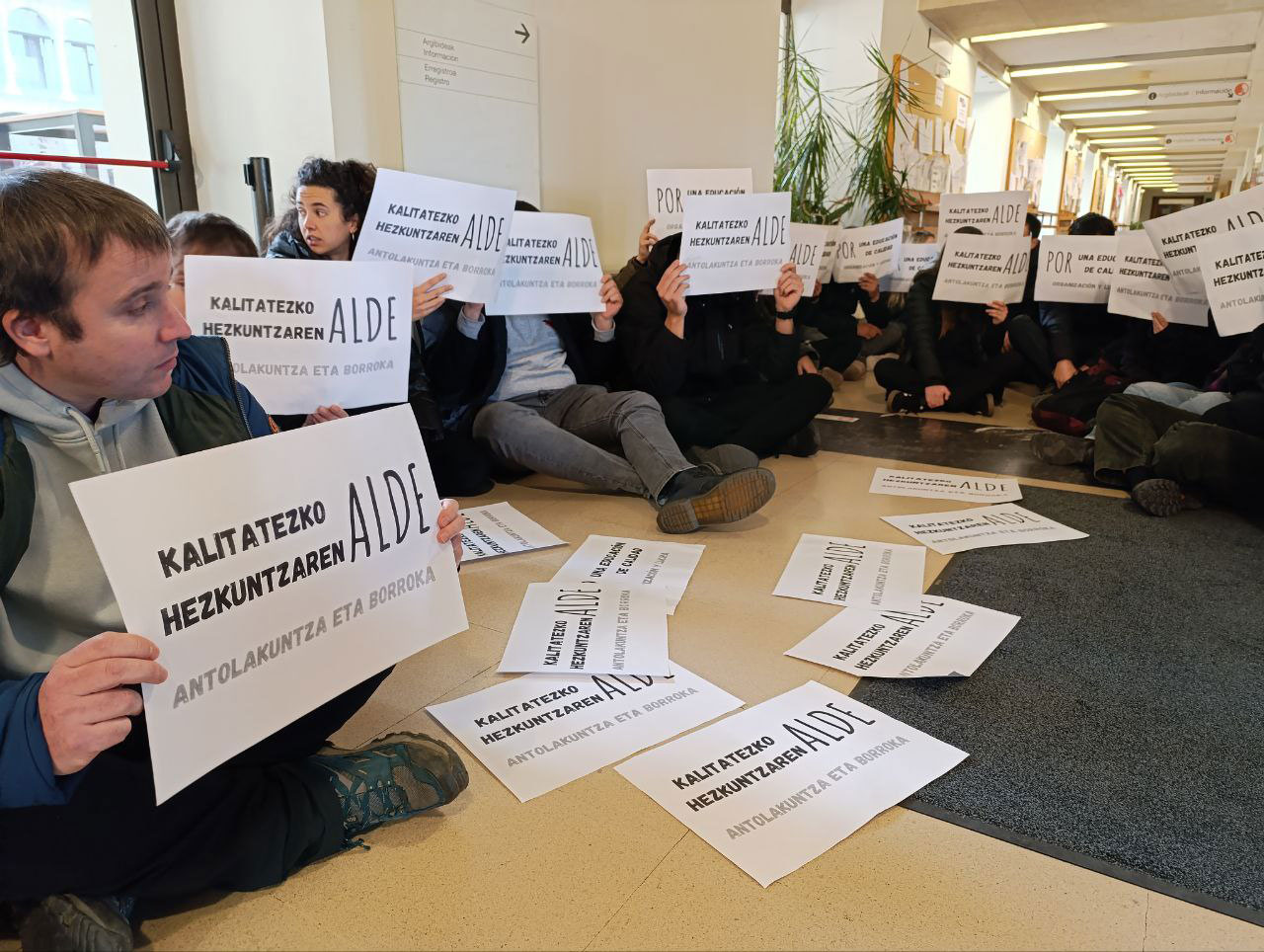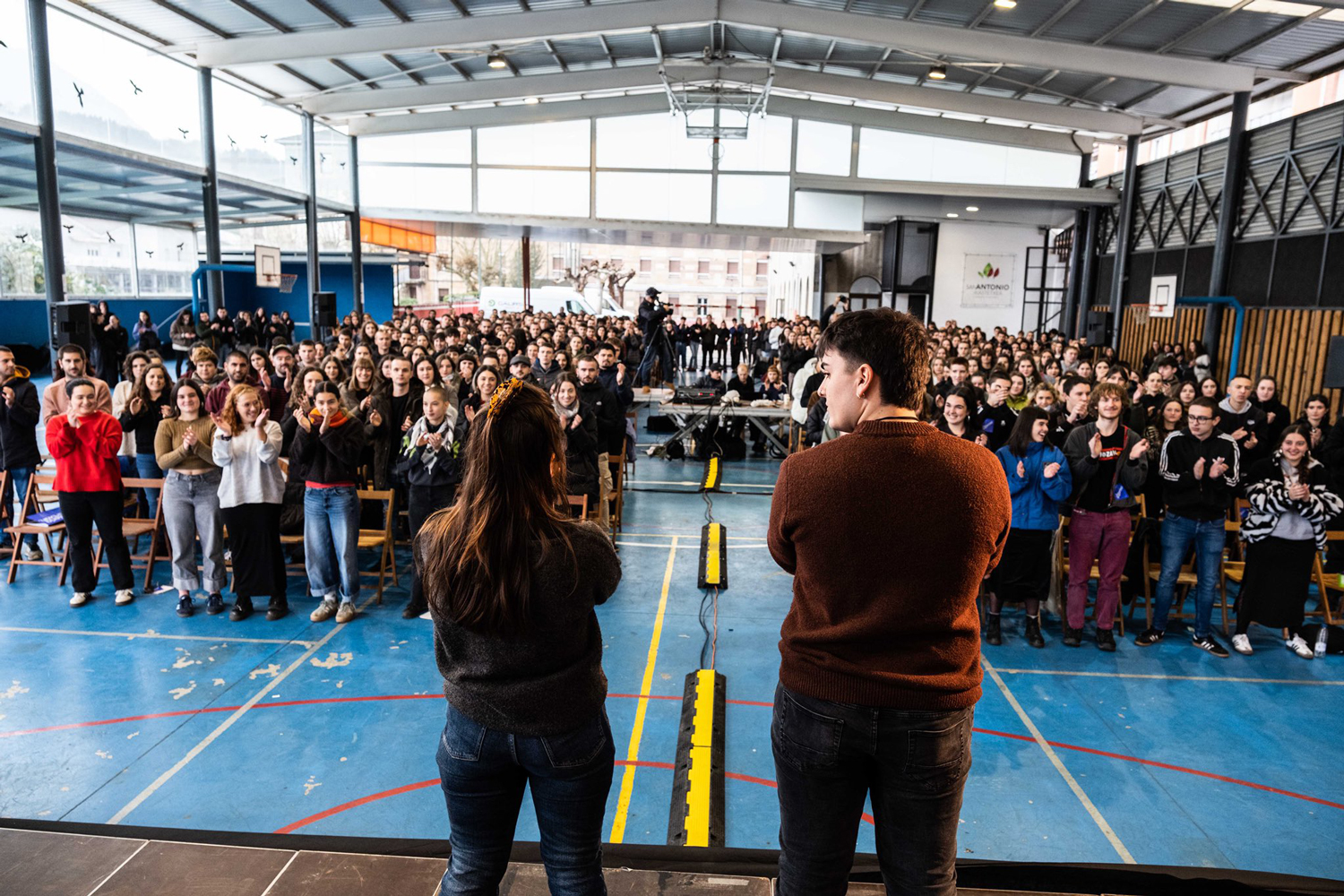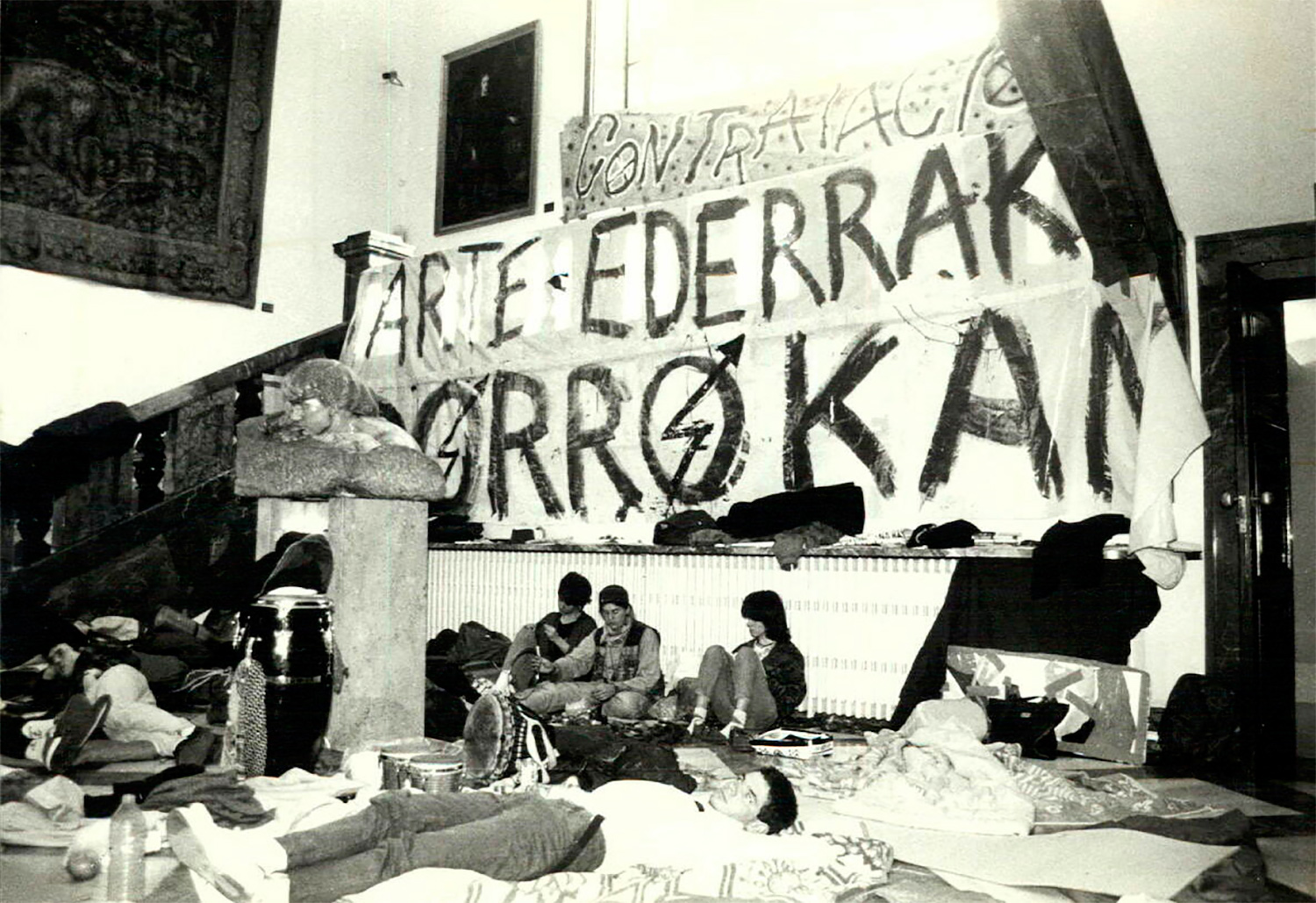Some ESO educational centres in the CAV are starting to mobilise in favour of continuous working hours.
- Due to the pandemic, in recent courses many Compulsory Secondary Education centers have had a continuous working day. In practice, some schools have considered this type of conference to be more appropriate than that which divides classes in mornings and afternoons, and have asked the Department of Education of the Basque Government to continue next year. In the absence of a few weeks to complete the course, the Department of Education has given a negative response to which several centers have begun to concentrate on Friday afternoon and in other educational communities the theme of the days goes beyond the autonomy of the centers, the dining system, the social perspective and the hours of organization of life.

"If the class hours required by law are given, why can each center not have autonomy to decide their schedule? We do not want to discuss with other centers what is best for others, but in our case it is very clear what kind of day an almost absolute agreement has." The association of parents Arratzain of the public school of the ESO of Billabona has shown this and has explained the characteristics of its center: "It is an educational center separated from the urban area that welcomes students from all over the valley of Aiztondo: half of the students (specifically 174) are transported, they make a daily bus trip through the neighboring towns. Therefore, the realization of a starting day supposes, on the one hand, that the students perform many hours away from home and, on the other, that they are a captive client of the dining room, that is, that for many students it is not an opportunity, but the only option they inevitably have. On the contrary, a continuous day guarantees the possibility of staying in the dining room (as we have done in recent courses)".
At the CAV there are 333 centers that will teach ESO next year and it is difficult to know how many of them are asking for a continuous day and to what extent they are discussing the issue. In the support platform for the continuous day, at the moment, there are sixteen associated centers.
In the centers that demand autonomy of decision, the consensus in favor of continuous work is very strong and the center's Higher Organs have approved support for continuous work: for example, in the survey carried out by Erniobea college last year, 98.72% of the families that responded that showed in favor of continuous work, 97.6% of the students and 93.2% of the teachers. The following graph shows the result obtained by the parents of the Peñaflorida school in San Sebastián asked about the subject:
Results of the school survey conducted by Usandizaga Peñaflorida Amara BHI IES Ikasleen Gurasoen Elkartea @upa_sustapena @Favor #ESOjornadacontinuous#DBHintensiva pic.twitter.com/i9CYRYZDVz
— TM (@pobmelat) June 5, 2022
At the moment, the Department of Education of the Basque Government does not recognize the autonomy of the centers for the election of the day: "In the course of 2022-23, the school day will be obligatory for all the non-university educational centers of the CAPV, both the public dependent on the Department of Education and those sustained with public funds".
How to organise the day in question
The concentration policy carried out by the Department of Education in recent decades has determined that students from different neighborhoods or localities are concentrated in the large buildings of the ESO, which is why many of them dedicate their time to displacement.
But the type of day directly influences the way of organizing the afternoon, whether in remote places or close to the school center. This is the argument given by the parents of Erniobea School: "The continuous journey allows better organization of the day, for example, so that children can perform school tasks and other activities in the afternoon, without the work accumulating at night".
Which day of study is better? This is the question that the educational community asks in the first place when it comes to discussing time. As with other subjects, each will point to research that gives completely opposite results (which coincide with one’s own attitude), and all kinds of theories can be heard among teachers.
The food system, conciliation and the issues of social cohesion are once again accumulating
As in the last courses it has been a continuous day, many students who would go to the dining room have become accustomed to coming home. And when they have heard that they will return to the starting day, the issue of canteens comes back to the table: many of these families feel "captive customers" of the catering system because they have no possibility of going to noon. These families don't understand why there is no alternative other than catering to make food, for example, why you can't take home food and eat at school. The theme of the opening day has again aroused in some families the desire to set up local cooking.
The fact that kids are "guarded" for many hours a day in schools and that food is guaranteed fulfills their social function. It facilitates the reconciliation of families working outside the home and ensures the main food for those who are tight with the income. These arguments are those which defend themselves in favour of the departure day.
Those who bet on the continuous day say that the dining service is provided in the same way after the classes, so this function is guaranteed. And, with a view to conciliation, they say that, being students from 12-16 years of age in the ESO, they are old enough to work at home. In addition, AMPA Arratzain has revealed the following contradiction: "If on the departure day it is also carried out continuously for two days a week, we do not understand why it cannot be done every day on a continuous basis."
In the 12-16 age group, is it possible to provide the maximum number of hours in the school to ensure social cohesion? The platform for a continuous journey claims: "To give six hours of class a day, we don't have to be 8 hours in school." The amount of resources allocated will depend on the dining room itself becoming a place of confrontation.
Centres that have so far been mobilised for the continuous working day
At CAPV there are 333 schools that will teach Compulsory Secondary Education in the next school year (all of them can be seen here) and of all kinds: public and concerted.
Some of them have made a continuous journey in recent courses, as the measures established in the pandemic could not be complied with in the canteens of many centers, for example, if many students had to make several meals shifts, or if the dining room was small spatially, etc. The theme of the continuous work in the ESO centers of the CAPV is not easy to discuss; it can be said that there are 16 associated centers for the moment in the CAPV platform that drives the continuous work: Mendata (Deba), Peñaflorida (San Sebastian), Colegio Amor Mercordioso (Sestao), Dolores Ibarruri (Abanto y Ciérvana), Nuestra Señora del Carmen (Portugalete), Calasanz (Santurtzi), Bárdarias (Leioa), Cruces
The platform has pointed out that it "defends the right to decide of each center and institute" and has promoted the concentration of Fridays in the centers: that parents, students and professors concentrate the last 15 minutes of class on the center portal. In addition, it has launched the collection of signatures (only the Peñaflorida College has obtained some 6,000 signatures, as Hirutxuloko Hitza explained).
Remember? 90% of Parliament adopted the Education Agreement two centuries ago – forgive me, two years ago. The reaction of the leftist congressmen moved between euphoria and moderate satisfaction. According to the approved document, private institutions would continue to... [+]









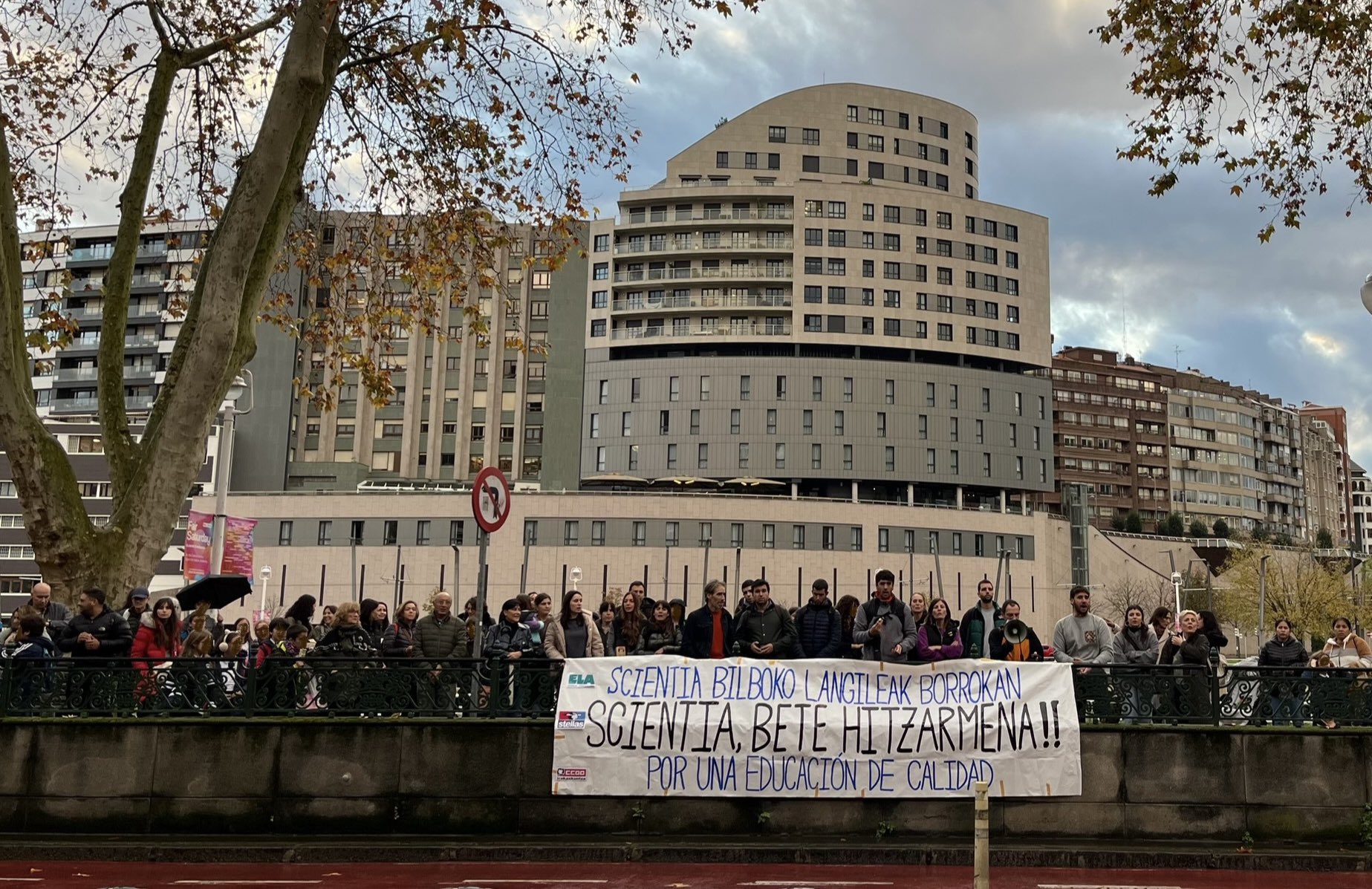

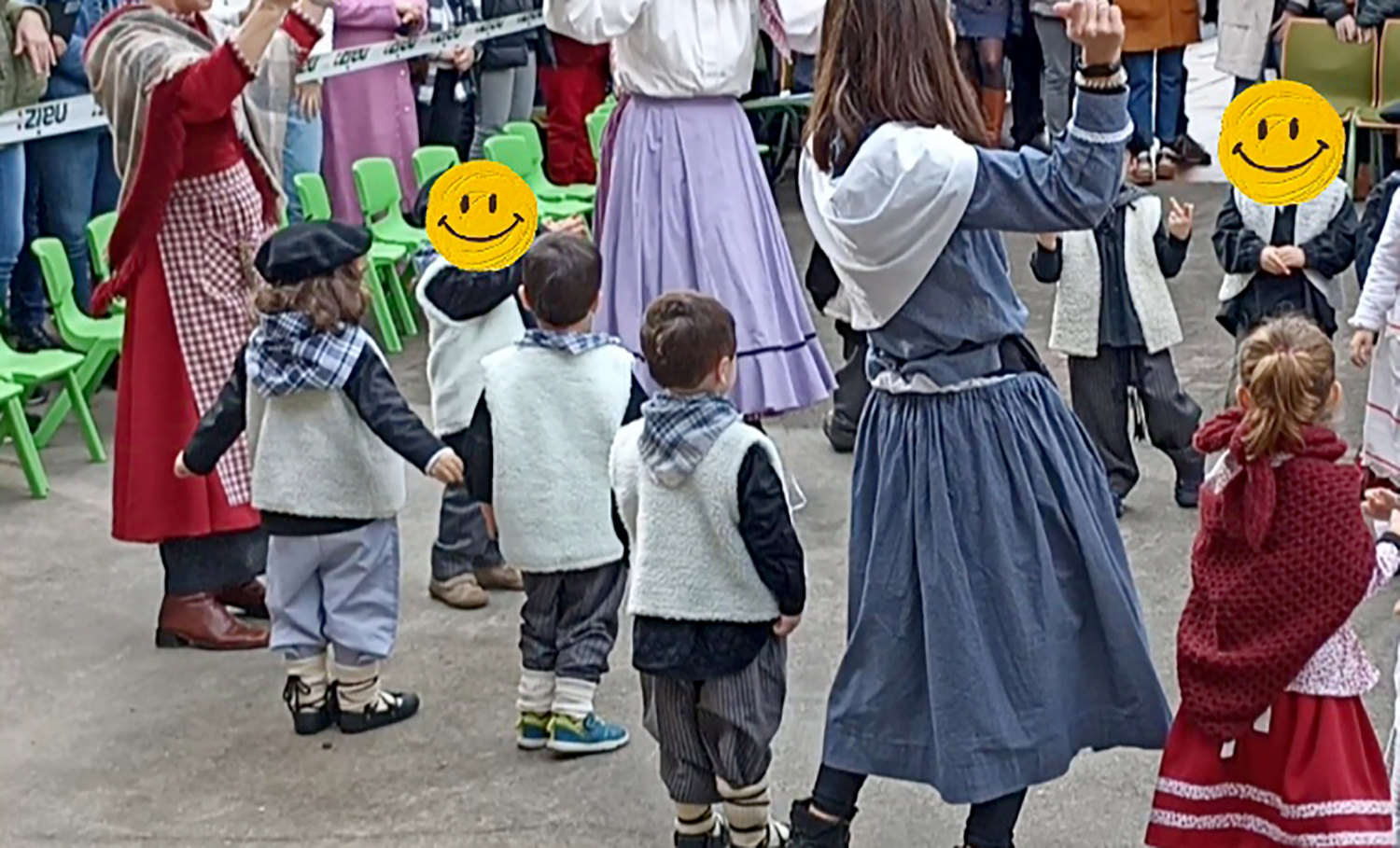
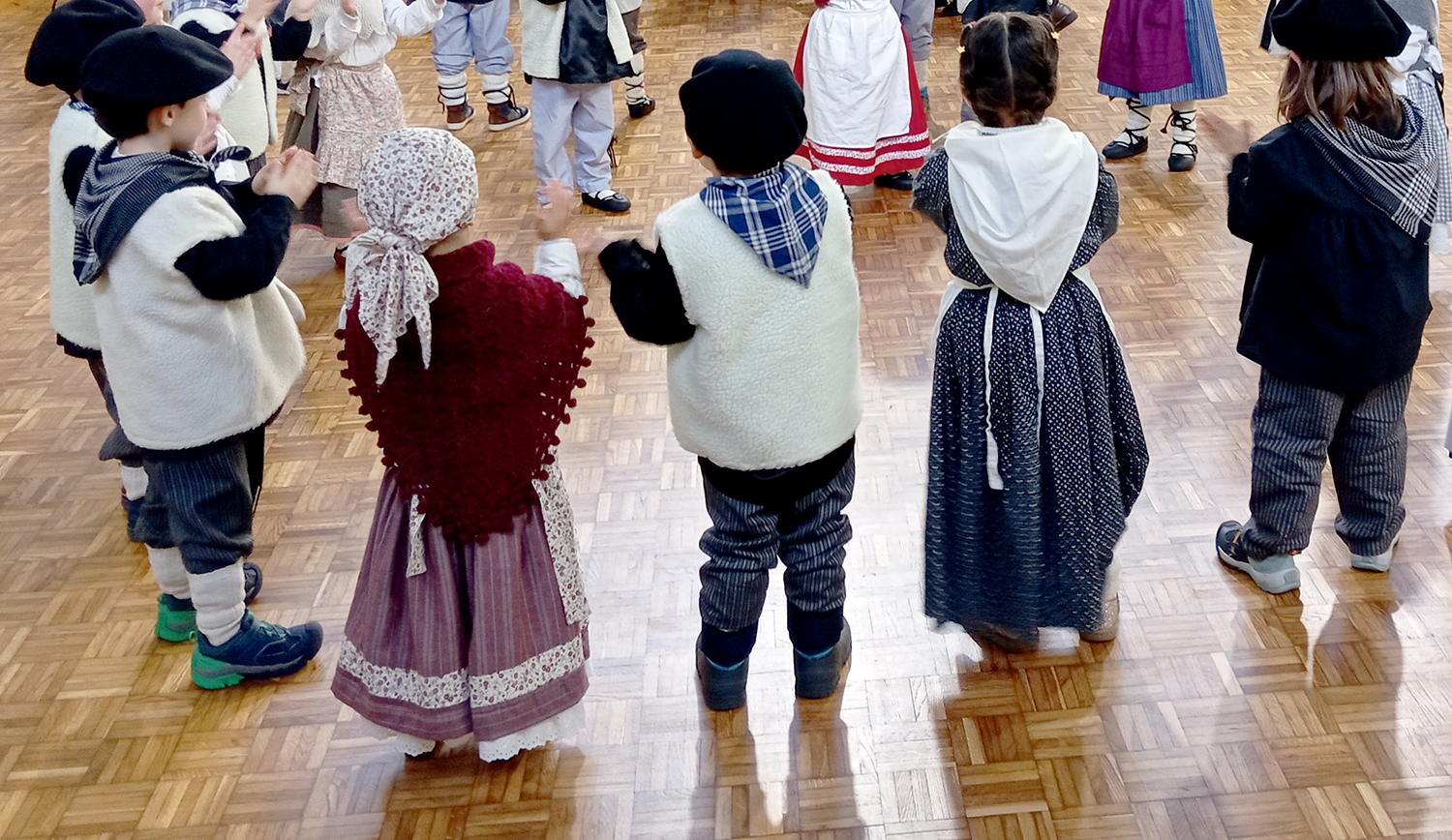
.jpg)

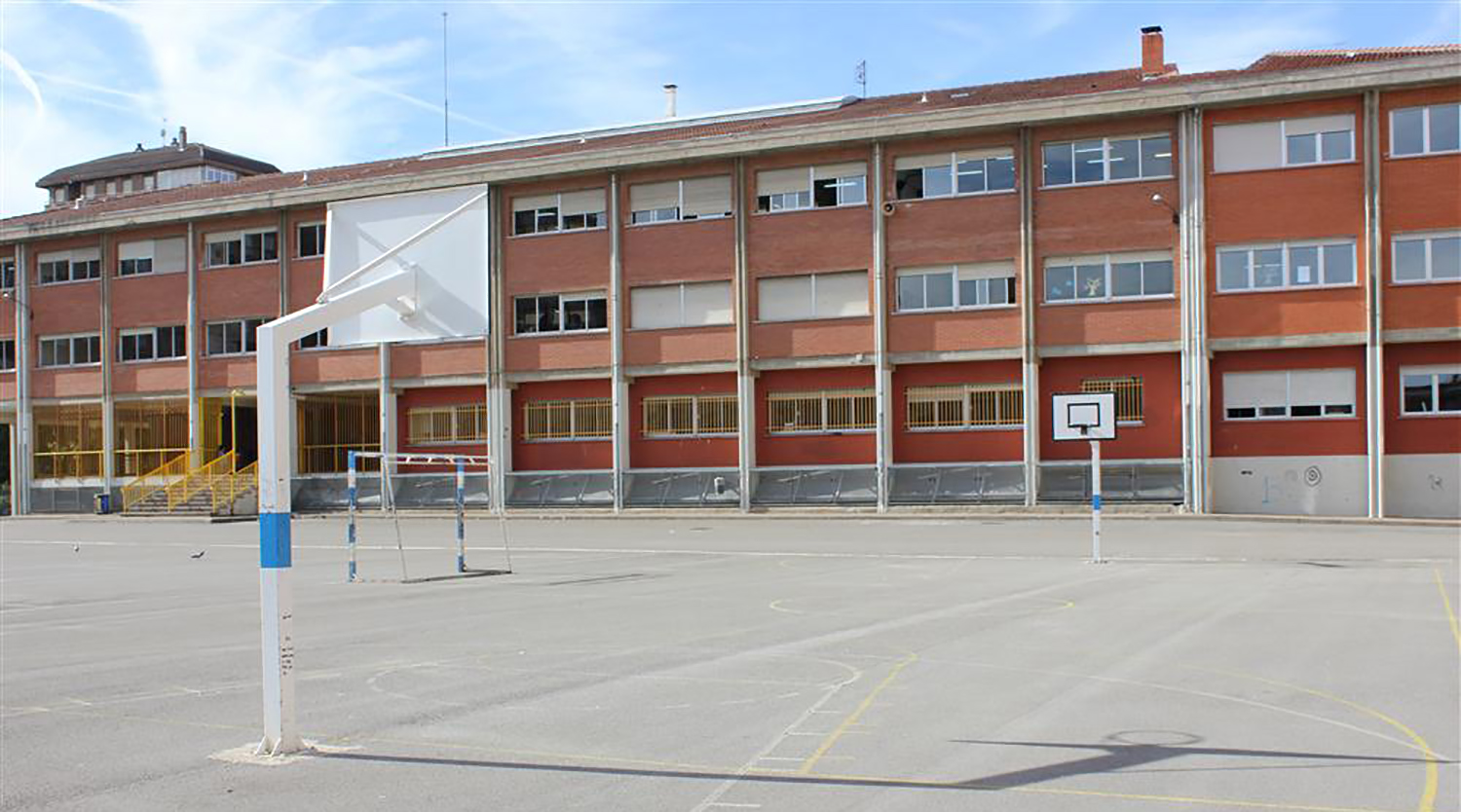
.jpg)
